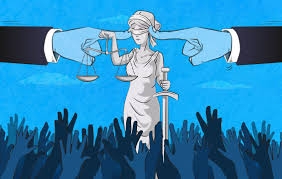Understanding Public Corruption: Forms, Causes, and Consequences

Public corruption refers to the misuse of public office for private gain, undermining the integrity of governmental institutions and eroding public trust. It manifests in various forms, each detrimental to societal well-being.
Forms of Public Corruption
-
Bribery: The offering, giving, receiving, or soliciting of something of value to influence the actions of a public official.
-
Embezzlement: The misappropriation of public funds or property entrusted to a public official.
-
Fraud: Deceptive actions by public officials to secure unlawful financial gains.
-
Nepotism and Favoritism: Granting jobs or favors to relatives or close associates, regardless of merit.
-
Extortion: Coercing individuals or entities to provide benefits under threat of harm.
Causes of Public Corruption
Several factors contribute to the prevalence of public corruption:
-
Lack of Transparency: When governmental operations are opaque, opportunities for corrupt practices increase.
-
Weak Institutional Frameworks: Ineffective laws and regulations fail to deter corrupt behavior.
-
Economic Disparities: Low salaries and economic hardships may tempt public officials to engage in corruption.
-
Cultural Norms: In some societies, corrupt practices are normalized, making them harder to eradicate.
Consequences of Public Corruption
The impact of public corruption is profound and far-reaching:
-
Erosion of Public Trust: Citizens lose faith in institutions meant to serve them.
-
Economic Inefficiencies: Resources are diverted from essential services, hindering development.
-
Social Inequality: Corruption exacerbates disparities, as benefits are unfairly distributed.
-
Weakening of the Rule of Law: Corrupt practices undermine legal systems, leading to lawlessness.
Combating Public Corruption
Addressing public corruption requires a multifaceted approach:
-
Strengthening Legal Frameworks: Implementing robust anti-corruption laws and ensuring their enforcement.
-
Promoting Transparency: Encouraging open government initiatives and access to information.
-
Institutional Reforms: Building capacities of oversight bodies to detect and prevent corruption.
-
Public Awareness Campaigns: Educating citizens about the detrimental effects of corruption and encouraging civic participation.
By understanding the various facets of public corruption, societies can develop effective strategies to combat it, fostering integrity and accountability in public institutions.
- Questions and Answers
- Opinion
- Motivational and Inspiring Story
- Technology
- Live and Let live
- Focus
- Geopolitics
- Military-Arms/Equipment
- Ασφάλεια
- Economy
- Beasts of Nations
- Machine Tools-The “Mother Industry”
- Art
- Causes
- Crafts
- Dance
- Drinks
- Film/Movie
- Fitness
- Food
- Παιχνίδια
- Gardening
- Health
- Κεντρική Σελίδα
- Literature
- Music
- Networking
- άλλο
- Party
- Religion
- Shopping
- Sports
- Theater
- Health and Wellness
- News
- Culture

